With a long history and loyal fanbase, you have to wonder which Civic is the best of the range. We’ve done some research to find the answer.
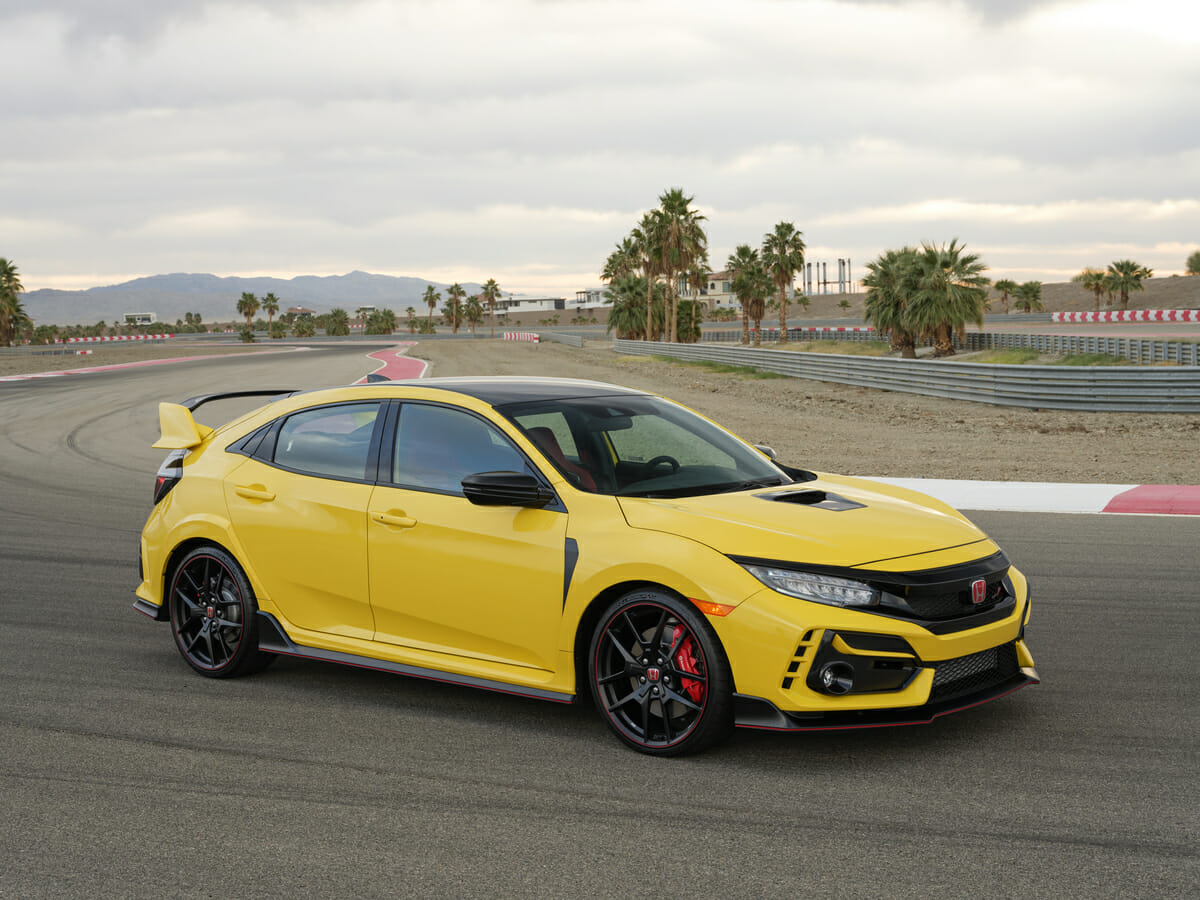
The first-generation Honda Civic was introduced in July 1972 as a subcompact sedan with a water-cooled, four-cylinder engine, and it certainly made an impact. With a longstanding reputation for reliability, performance, and versatility, the Honda Civic is a practical option for many car buyers. If you’re in the market for a compact car, the Civic is worth a look.
Today, the Civic is classified as a compact car and is in its 10th generation of production. And we’re already hearing updates about the 11th-generation Honda Civic.
Available in coupe, sedan, and hatchback body styles, there are plenty of trims (and engines) to choose from today. but with such a long history and loyal fanbase, which Civic is the best Civic? We’ve done some research to provide some in-depth insight for car buyers when it comes to choosing the best new or pre-owned Honda Civic.
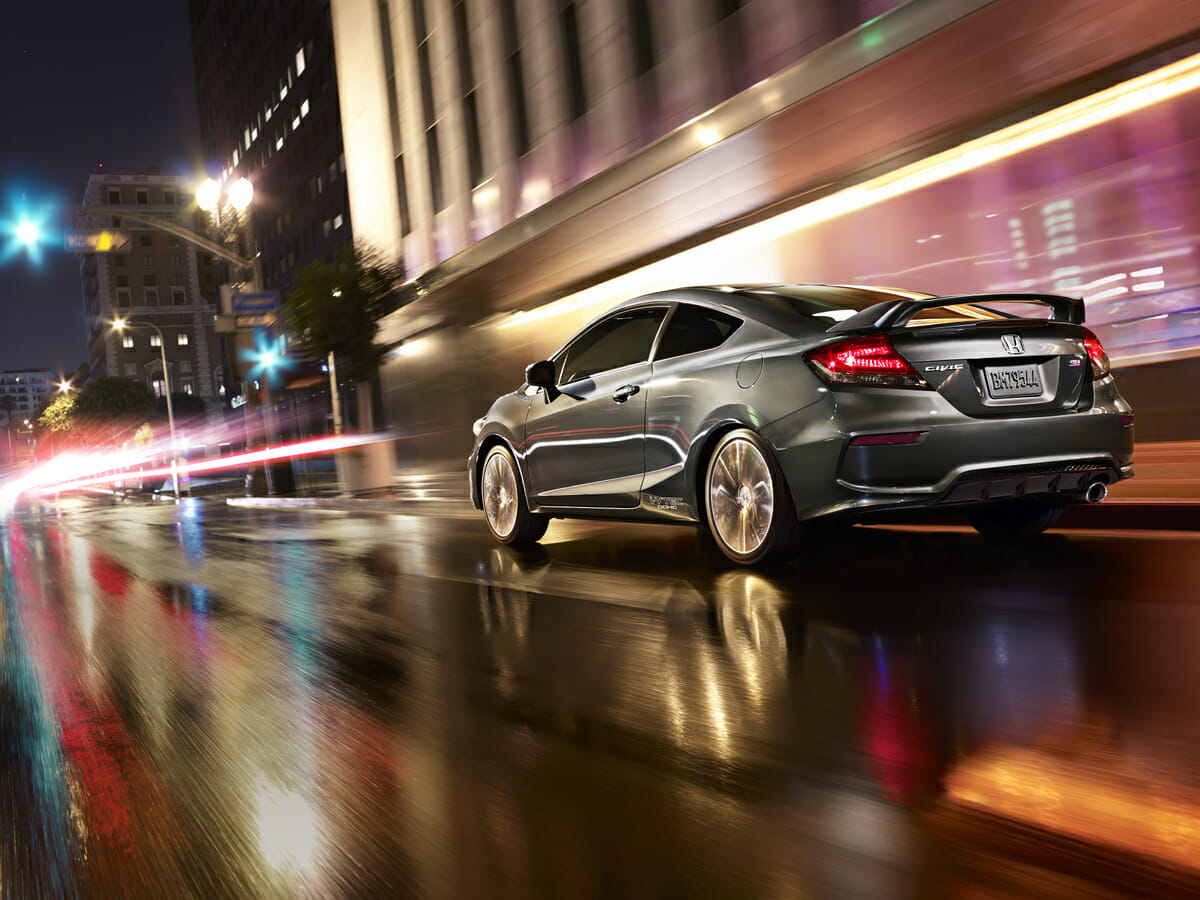
The Flexibility of the Civic
In the Seventies, with the oil crisis in full swing and the EPA pushing the Clean Air Act of 1970, it wasn’t hard to see why the Honda Civic’s CVCC (Compound Vortex Controlled Combustion) engine was a top pick for consumers.
With the ability to burn leaded or unleaded fuels, the fact that you didn’t need a catalytic converter to meet EPA standards, and the reliability of a Japanese brand the first-generation Civic was a hit. It came with all the dressings and trimmings of a frontrunner subcompact car. It even came with faux wood covering on the dashboard, disc brakes, and air conditioning.
With a 69 horsepower, 1.2-l, water-cooled I4 pushing a 1,499-pound hatch down the road, we’re sure early adopters caught on to the soul of the Civic after being behind the wheel. Today, Honda Civics have changed considerably with the same flexibilities in mind.
A current 10th-generation Civic can zip you all over the city with 32 miles per gallon or take you on a highway road trip at 42 miles per gallon. With a futuristic and engaging interior to match, the Civic has a lot to offer the modern-day buyer –– just like it did back in the ’70s. But that doesn’t mean that Honda hasn’t had its fair share of troubles with the Civic.
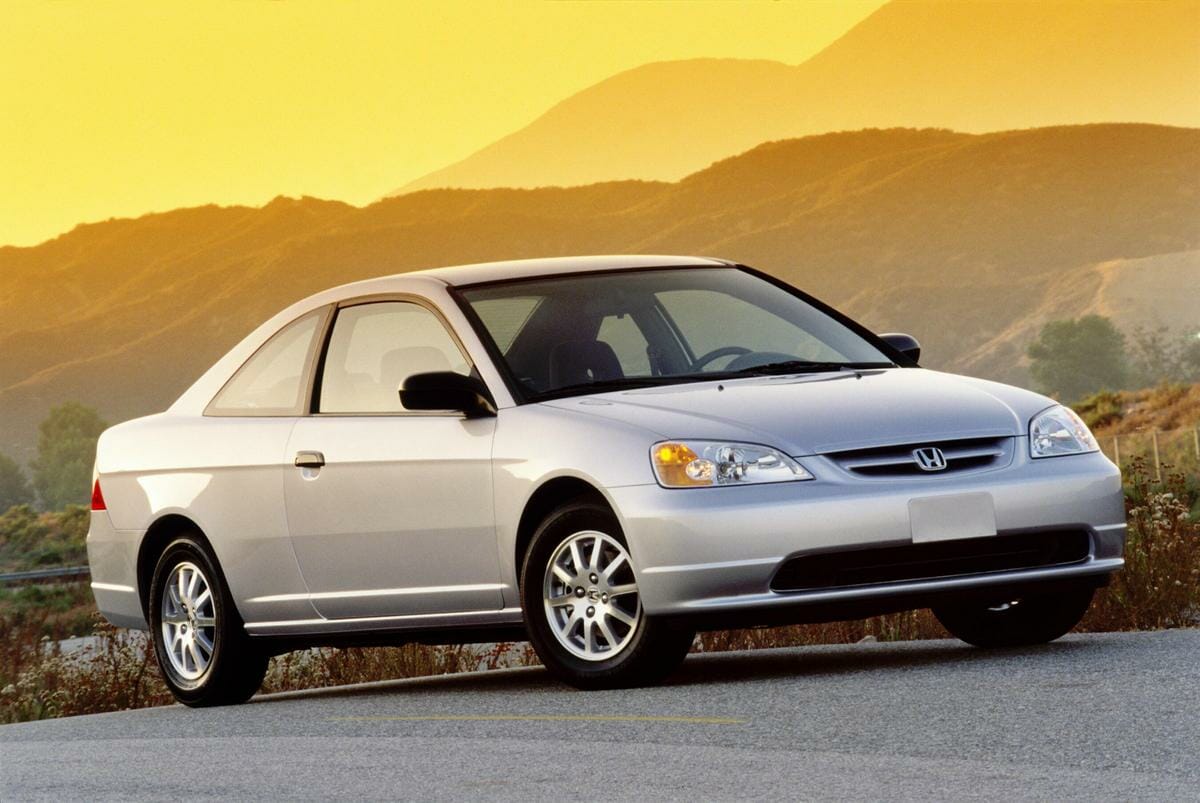
Honda Civic: Airbags and Recalls
By 2001, an automotive parts company had stuffed its airbags into a lot of different auto brands –– the Honda Civic notwithstanding. The Takata Airbag recall was far-reaching and has been exhausted as a subject in the public eye with good reason. With 26 people dead and hundreds injured all over the world, the focus, naturally, became acutely aimed at righting this wrong.
But when you produce cars by the thousands and sell them globally, your results may not be as complete as you want. This, unfortunately, described a long list of Honda vehicles, including Civics from 2001 to 2011. It’s worth mentioning that many vehicles were fixed by Honda at no charge to the customer and included a rental car paid for by Honda while your car sat waiting for an airbag replacement.
Also in 2001, there were many reports of transmission failure. Customers reported slipping, popping out of gear, and even total loss of power, costing $2,300 – $4,000 to fix. With no reparation from Honda despite thousands of complaints, these Honda owners were on their own. For the 2001 model year, the NHTSA reported a total of 27 recalls and over 1,000 complaints against the Japanese car giant.
With all of this in mind, it’s safe to say that 2001 is the year you want to avoid for Civic ownership, with transmission issues tapering off, yet still existing, into 2002. Despite all of this, you can still find a group of strong-willed Civic owners that swear by their seventh-generation chariots.
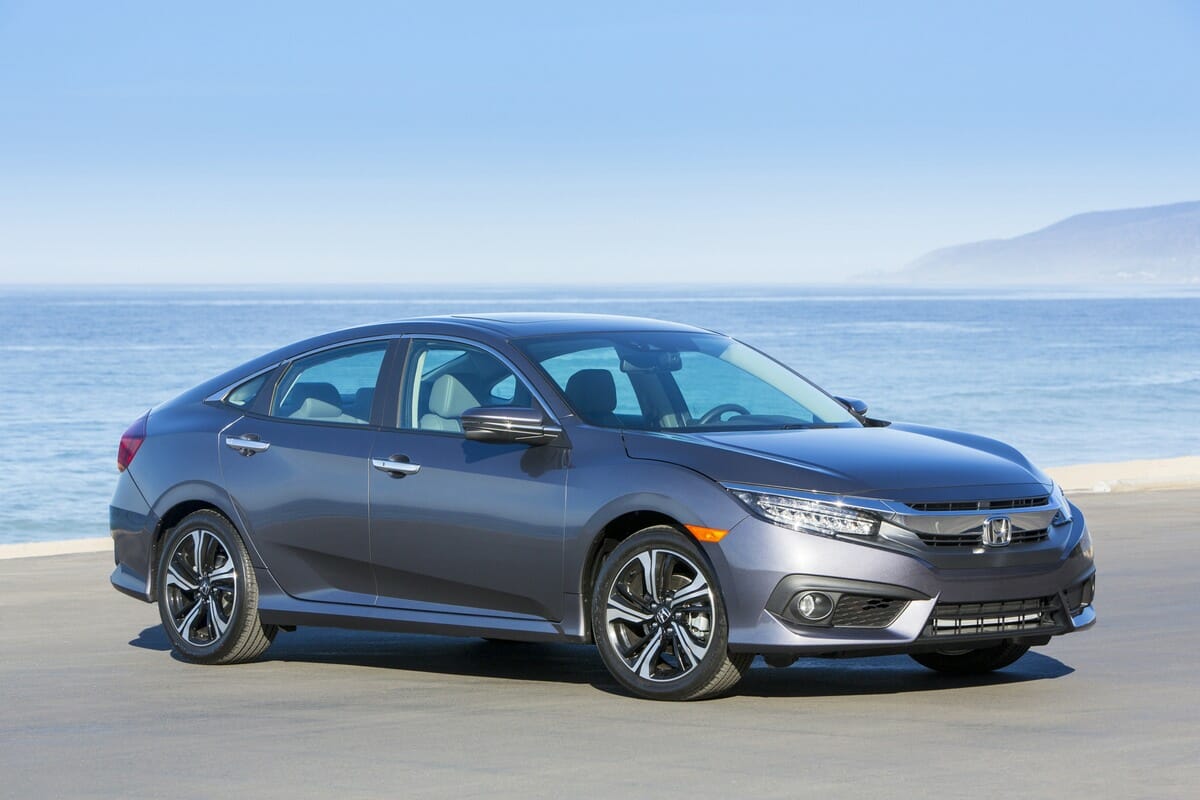
Honda Civic Sales Figures
Since 2005, the highest year for Honda Civic sales has been 2017 with 377,286 units sold. After just a year into Honda’s full redesign for the tenth-generation Civic, they really seemed to get it right.
Most media outlets complained about the infotainment system, including the lack of a volume knob and the adaptive cruise control being touchy and “adaptive” way too early.
Regardless, Edmunds gave it a 4.5 out of 5, Motor Trend calls it “much improved” and Car and Driver called its CVT (continuously variable transmission) the “best on the market.”
The 2017 model year is what excited people about Civics again after a couple of generations, and this was the year that the Civic Type-R (FK8) came back to the United States. This meant that Honda now had something to offer a large portion of the consumer market, with a coupe, sedan, and hatchback in both economy and sport variations, though the coupe was discontinued after the 2020 model year.
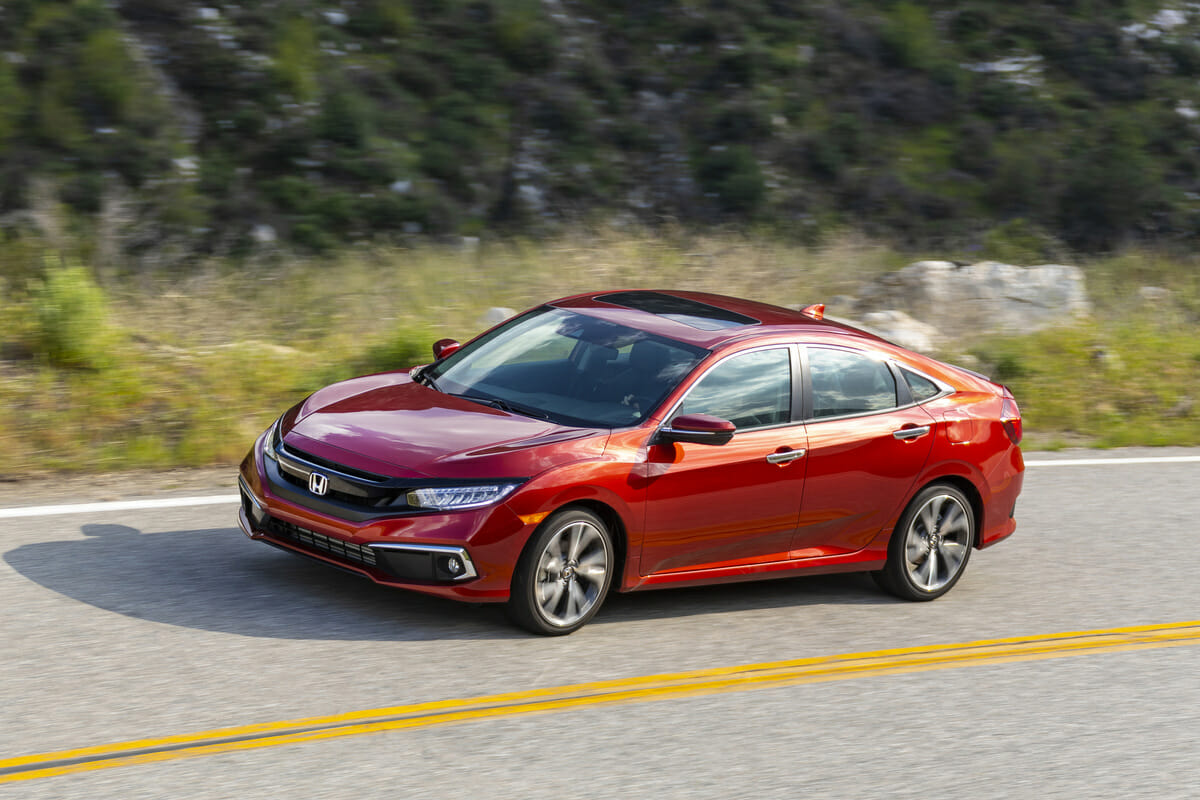
The Spirit of Sport Injected
The Honda Civic was growing up. It was becoming the choice for a wider demographic of people hunting for reliable and economic transportation. At the same time, Honda wasn’t haphazardly stamping the “Si” badge on EX Civics with no intention of them being performance-based. Instead, Honda continued to pursue the “Sport Injected” spirit of the Si.
In a direct comparison between a 2020 Civic Sport Sedan and a 2020 Civic Si Sedan, we see a large difference between the 2.0-liter naturally aspirated I4 in the Sport and a turbocharged 1.5-liter I4 in the Si. With almost a 50 hp difference, it’s not that the 2020 Honda Civic Sport is underpowered, it’s that Honda took its sportier line seriously –– and enthusiasts noticed.
If you want to turn your entire experience up to 11, you have the option with a Civic Type-R, which pumps out a respectable 306 horses. Honda looked to reach both markets and succeeded, reaching consumers looking for a reliable and fuel-efficient vehicle, and the enthusiasts that want those things plus more performance.
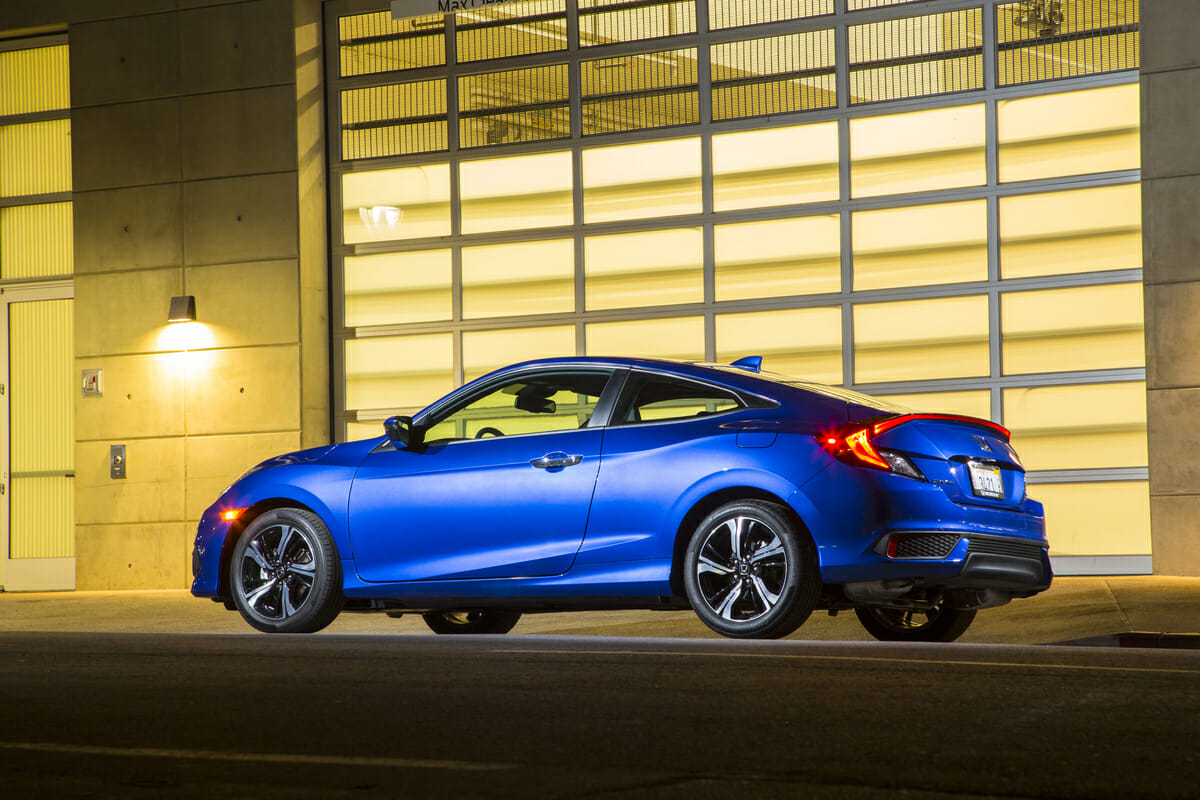
Best Honda Civic Year
Take a step back and think about what Honda has built with a decade of Civics. It doesn’t really matter which generation you own, Honda Civic owners love their cars because they’re dependable, affordable, fuel-efficient, and practical.
“It is a Honda, so you know it will be a reliable car in the long run — and it can be a flashy car,” says Alex P. in his Vehicle History review of his 2017 Honda Civic Type R Touring. “It has a decent amount of power but not enough to where it can be compared to legit sports car. Overall, I love the look and the feel of the car. There is plenty of room front and back. It’s smooth and fun to drive.”
If you’re in the market for a pre-owned Honda Civic, consider a 10th-generation Civic, which made its debut for the 2016 model year with a new lineup of engines. This includes a standard 2.0L four-cylinder rated at 158 horsepower on the LX and EX trims. A turbocharged 1.5-liter four-cylinder engine is standard on the EX-T, EX-L, and Touring trims. This engine puts out 174 horsepower and is paired with a CVT.
Since the launch of the Civic’s 10th generation, not much has changed regarding engine offerings. The 2.0-liter four-cylinder engine remains standard, while the turbocharged 1.5L four-cylinder is included on upper trims.
If you opt for a hatchback version of the 10th-gen Honda Civic, you’ll receive the turbocharged 1.5L engine as standard. A hatchback Sport or Sport Touring trim offers some extra power output at 180 horsepower.
Honda’s Variable Valve Timing & Lift Electronic Control (VTEC) engine was first introduced in the 1980s as a means of improving power output while reducing fuel consumption and emissions in the process. Many Honda Civic models have received versions of the VTEC engine over the years, including the 2002-2011 Honda Civic Si and the 2001-2005 Honda Civic Hybrid.
Also, don’t overlook the Honda Civic Si model, which is a performance-oriented version of the traditional Civic sedan and coupe that was offered through the 2020 model year. On the 2020 Civic Si, you’ll find the most powerful engine in the lineup: a turbocharged 1.5L four-cylinder at a whopping 205 horsepower. This engine teams up with a sport-tuned suspension and adaptive dampers for an exhilarating ride.
So, Which Honda Civic is the Best One?
Choosing a Honda Civic can be daunting considering the automaker’s many decent options that are available, but we can recommend a few models based on what your needs are. With the assumption that you’re avoiding early 2000s Civics, there are some great options for your next purchase.
If you’re a person that needs a daily driver and you don’t care about going fast but you want updated creature comforts, we recommend the 2017 Honda Civic in the EX trim and above. This is going to give you a smooth-shifting CVT, Apple CarPlay/Android Auto, and industry-leading miles per gallon.
If you’re trying to save a little money or even buy a cash car and don’t care about fancy infotainment systems, we recommend an eighth or ninth-generation Civic, which spans 2008 to 2014.
These are some of the best years, especially if you like to work on and mod and customize your cars, because there are extensive aftermarket and OEM parts available online, and a robust community with experiential knowledge of your new-to-you automobile. On top of that, you can find relatively low mileage listings for considerably less than $10,000, making it very affordable to obtain.
The 10th-gen Honda Civic Si is a fantastic choice…[but] the most well-rounded is a 2017 Honda Civic EX four-door hatchback.
For the speedy drivers out there, we recommend any of the Si variants. If you want reliable and warranty-covered speed, the 10th-generation Honda Civic Si is a fantastic choice. For drivers who want to turn wrenches and build their speed, we recommend an eight- or ninth-generation Si.
If you want the newest and the best, hold on for a little longer as the new 11th-generation offerings are being released in the spring of 2021.
For the top percentile Civic driver, set your sights on a Civic Type-R. It’s been available in the U.S. since 2017, so you can find gently-used models for sale or go on the hunt for a new model as long as you can afford the steep dealer markups.
There may be a Civic for any car shopper, but our recommendation for the most well-rounded is a 2017 Honda Civic EX four-door hatchback. With a CVT, plenty of storage room, 174 horsepower, and a combined 34 miles per gallon, you can expect the flexible reliability Honda is known for in the automotive market.
Photos: Honda
